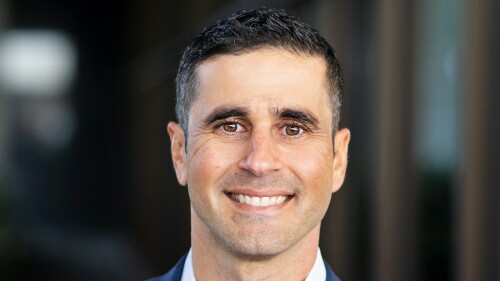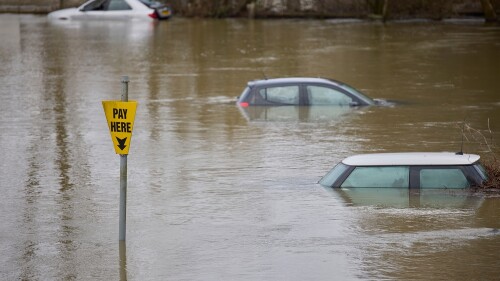A group of nationally renowned land use and urban planning experts has been convened by the Urban Land Institute (ULI) to make recommendations to the city of Norfolk, Virginia, on improving the resilience of the Fort Norfolk neighborhood, which is strategically important in the city’s plans for economic vitality as well as climate change preparedness.
Conducted through ULI’s Advisory Services program, the panel visited Norfolk in mid-December. Panelists evaluated many aspects of waterfront resilience and redevelopment, including the best ways to use land that borders the waterways to ensure that the city can withstand tidal and storm flooding for the next 50 to 100 years. Among the factors to be considered are the following: the area’s market potential, given future demographic, population, economic, and environmental shifts; preserving public access to the waterfront; land uses that promote the long-term value of the development; the impact of flooding on site marketability; land use techniques to improve resilience and incentives to encourage use of the techniques; and using resilient development strategies to help address poverty and promote social equity.
The ULI panel assignment for Norfolk is part of a series of advisory panels being supported by a generous grant from the Kresge Foundation to advance the Institute’s pursuit of urban design and development practices that are more resilient and adaptable to the impact of climate change. The panel is being sponsored by the city of Norfolk.
With the support from Kresge, ULI is leveraging the expertise of its members to provide guidance on community building in a way that responds to inevitable climate change while helping to preserve the environment, boost economic prosperity, and foster a high quality of life.
The communities chosen for advisory panel assistance through ULI’s community resilience work are being selected on the basis of two things: the community’s long-range resilience challenges and vulnerabilities to severe weather-related events, and the opportunity for the results to be applied to other communities with similar vulnerabilities.
The panel examining Fort Norfolk is being chaired by John McIlwain, a former ULI senior resident fellow who now serves as a senior adviser to the Garrison Institute on climate change. He is also a consultant on housing and urban resilience and a senior adviser to the Jonathan Rose Companies in New York City. “ULI looks forward to bringing the expertise of its members to Norfolk,” McIlwain said. “We are aiming to draw from our experience in Norfolk to demonstrate how communities can be built to be more resilient, and improve their economic, environmental, and social well-being in the process.”
In addition to McIlwain, the other panelists are: Margaret Doyle, vice president, Development and LNG Solutions, USMRC, Maritime Simulation Institute, Middletown, Rhode Island; John Macomber, senior lecturer of business administration, Harvard Business School, Cambridge, Massachusetts; Jonathan Miller, president and chief executive officer, Miller Samuel Inc., New York City; Paul Moyer, director of planning, VHB, Vienna, Virginia; Chuck Schilke, senior lecturer, Edward St. John Real Estate Program, Johns Hopkins Carey Business School, Washington, D.C., and Baltimore; David A. Stebbins, vice president, Buffalo Urban Development Corporation, and senior project manager, Erie County Industrial Development Agency, Buffalo, New York; and Juvarya Veltkamp, manager, Green Economy Initiatives, Vancouver Economic Commission, Vancouver, British Columbia.
According to Thomas Eitler, vice president of ULI’s Advisory Services program, the strength of the program lies in the Institute’s unique ability to draw on the knowledge of its 34,000-plus members, including land developers, engineers, public officials, academics, lenders, architects, planners, and urban designers. “The independent views of the panelists bring a fresh perspective to the land use challenge,” Eitler said. “The Advisory Services program is about offering creative, innovative approaches to community building.”


![Western Plaza Improvements [1].jpg](https://cdn-ul.uli.org/dims4/default/15205ec/2147483647/strip/true/crop/1919x1078+0+0/resize/500x281!/quality/90/?url=https%3A%2F%2Fk2-prod-uli.s3.us-east-1.amazonaws.com%2Fbrightspot%2Fb4%2Ffa%2F5da7da1e442091ea01b5d8724354%2Fwestern-plaza-improvements-1.jpg)


